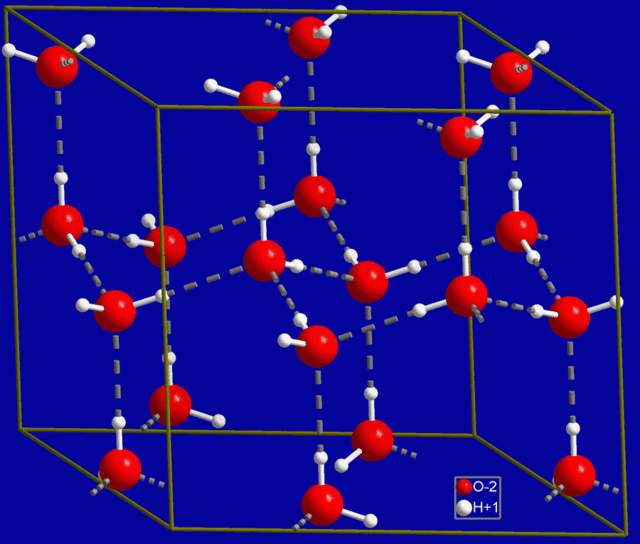
There is a concept in physics called entropy.
The simple definition of entropy–the reality is much more complex–is the state of order (or disorder) of a system. It can also be described as the state of information embedded in a system: lower entropy means more information.
An example often use to explain entropy is that of system that starts as an ice cube. An ice cube is a highly ordered state of water–the individual water molecules are arrayed into a regular, repeating pattern of crystals. This pattern can be easily described. Each molecules is locked in placed with no freedom to move. It is highly ordered.
Apply heat to the ice cube. It melts. The individual molecules are now free to move in the resulting liquid–water–and so the overall pattern can no longer be easily described. It is more disordered.
The water, in going from solid to liquid, has increased its entropy. The application of heat has made this change possible
Of course, we can move in the opposite direction: we can remove heat from the liquid water to return it to its highly-ordered, low entropy state.
The universe, as a whole, moves from a state of low entropy to high entropy–stars are running down, galaxies collapsing.
(For an interesting sci-fi take on this concept, read “The Last Question” by Isaac Asimov.)
Only in small, local environments–the freezer compartment of your refrigerator, for instance–can the general trend towards increased entropy be reversed.
To summarize one version of entropy: a low entropy system contains more information than a high entropy system.
What does this have to do with Information Technologists like ourselves?
We are agents of entropy change.
Think about a content delivery system that we might be developing. Certainly there are many ways to describe the purpose of the system–to deliver data to the end-user, to allow new concepts to be generated, and the like.
All of those purposes can be summed up in one simple description:
We have created a system that permits a local decrease in entropy by adding and collecting information. We can create these systems to be used by anyone, anywhere in the world, to increase knowledge and thereby decrease entropy.
With great power comes great responsibility.
Wikipedia
The idea—similar to the 1st century BC parable of the Sword of Damocles and the medieval principle of noblesse oblige—is that power cannot simply be enjoyed for its privileges alone but necessarily makes its holders morally responsible both for what they choose to do with it and for what they fail to do with it.
We can work against the general trend of the universe. This is an amazing power to hold. We can use it–or allow it to be used–for good or evil purposes.
Let’s all chose wisely.